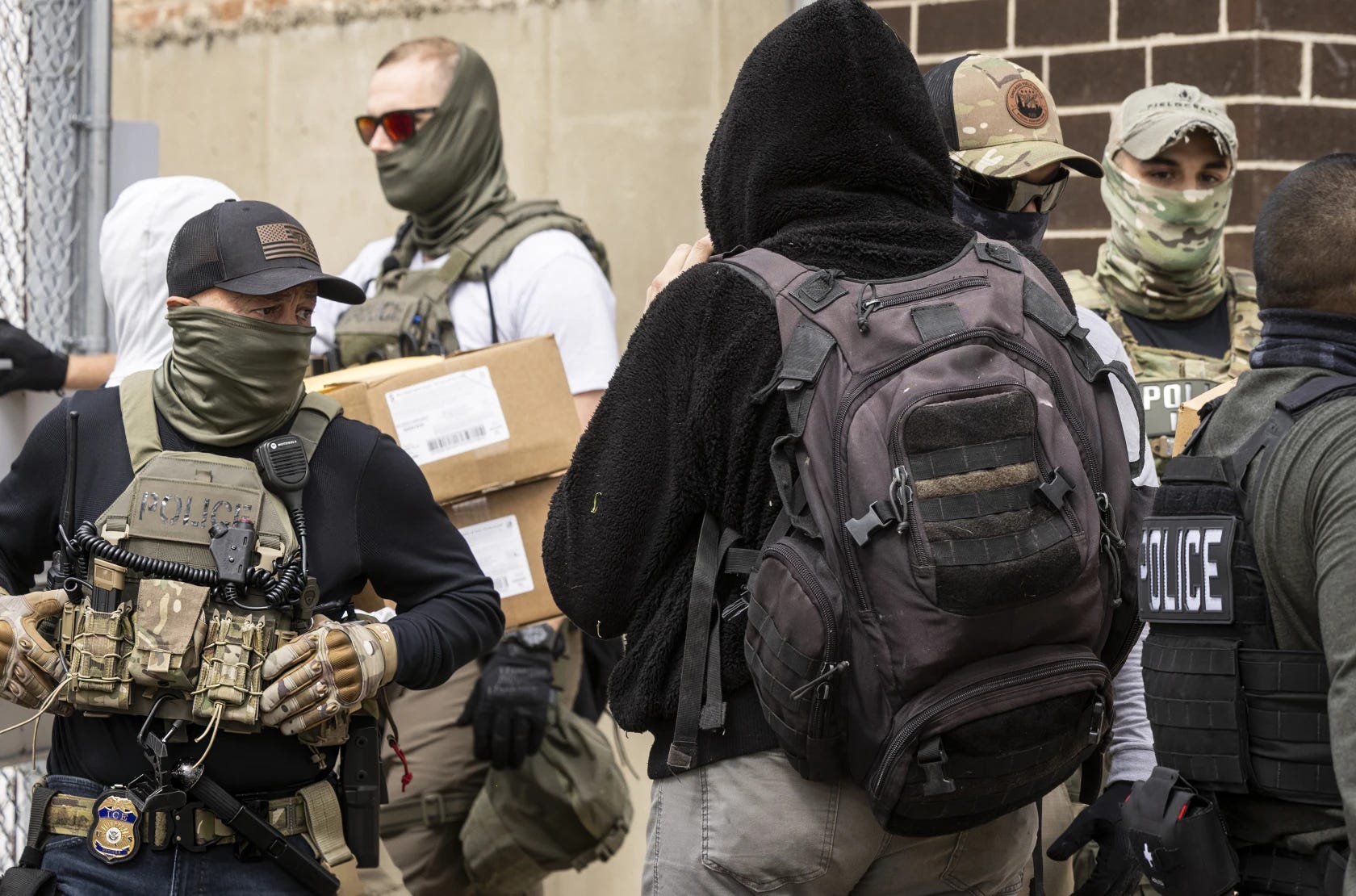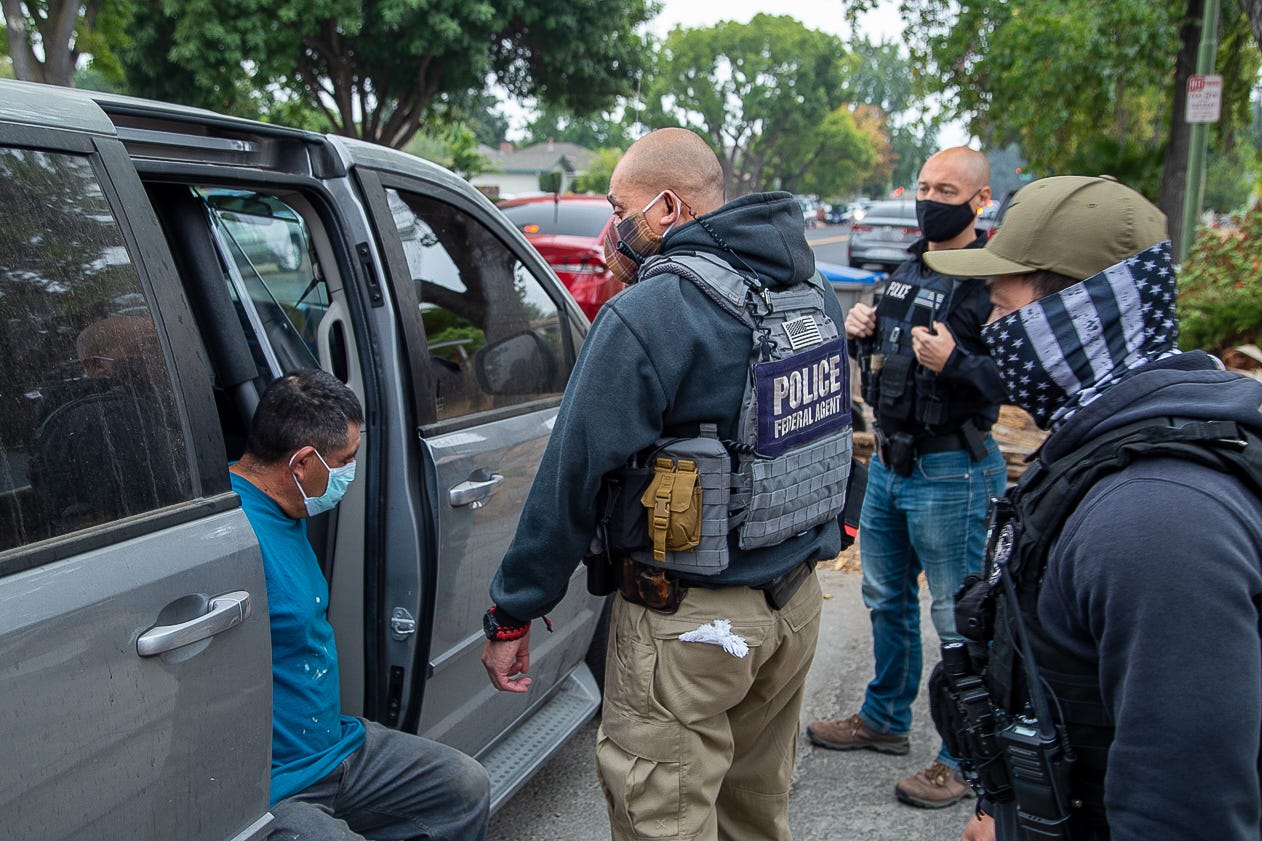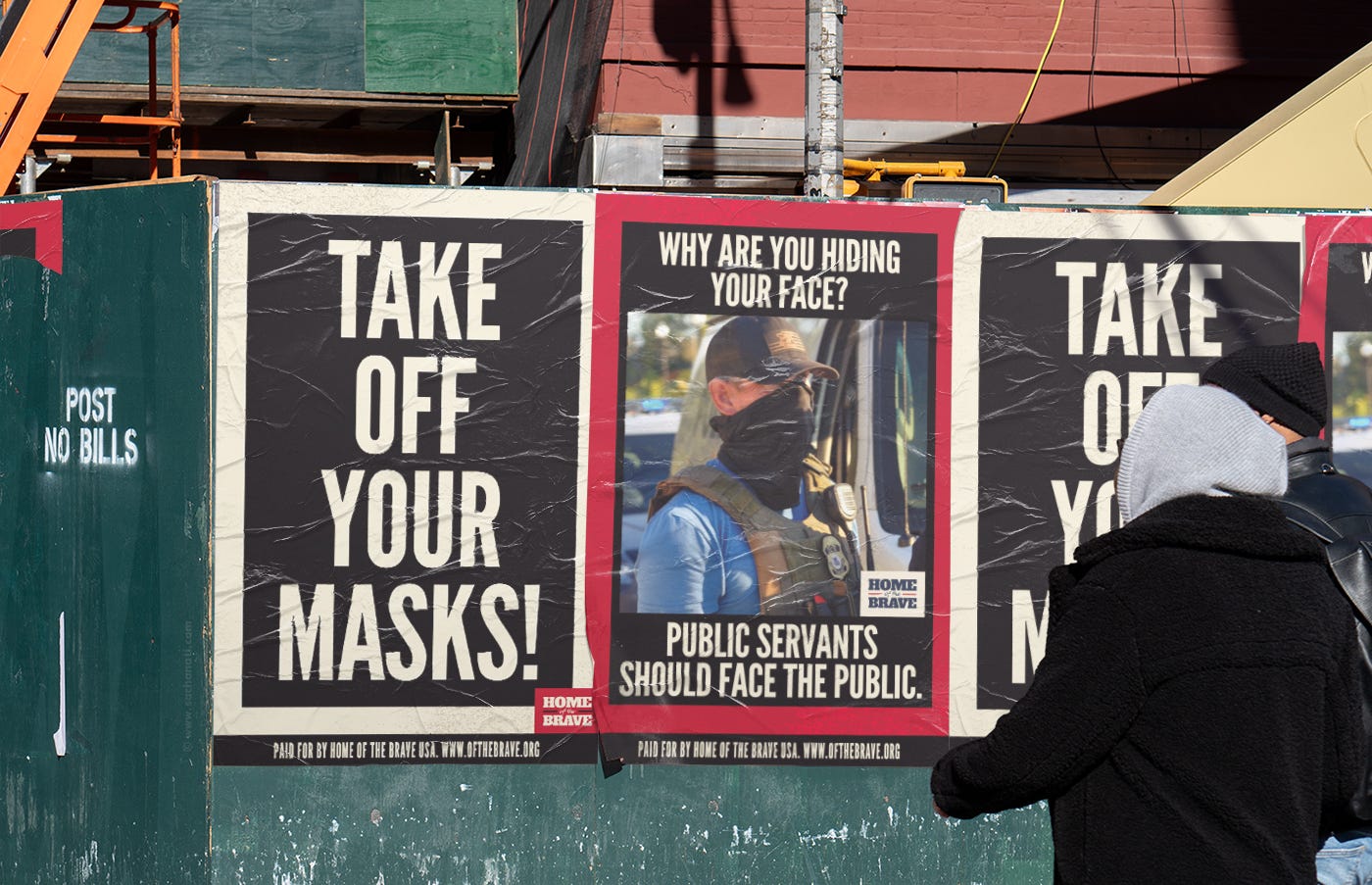ICE capades: the roundup
PWS weekly on the ghoulish acts, dastardly deeds, and unseemly actions of the country's now-biggest LEO
As ICE becomes one of the largest law enforcement organizations on the planet, it couldn’t be more crucial for real-time reporting by journalists with experience on both the migration and authoritarianism beats. As part of efforts to provide that coverage, PWS brings you the weekly “ICE roundup”
ICE gets weapons-grade surveillance and hacking software
US migration enforcement officers are about to obtain access to one of the most powerful surveillance and hacking cyberweapons in the world. The Trump administration has announced plans to move ahead with a contract with Paragon Solutions, an Israeli company that makes spyware capable of hacking into phones and other electronic devices, as well as breaking sophisticated encryption methods.
The contract was initiated in late 2024 under former President Joe Biden. Implementation, however, was delayed as the government conducted compliance reviews under US law. But the decision to move forward was quietly carried out on Saturday.
The $2 million deal will provide ICE agents with tools even more sophisticated than previous cyber weapons like Pegasus, which has since been banned in the US after abuse by some states, including in Latin America.
Among other possible applications, the hacking software , called Graphite , can hack into any phone, essentially taking control of the device. Using the software, ICE will be able to not only track an individual’s whereabouts, read their messages, look at their photographs, but also open and read information held on encrypted applications, like WhatsApp or Signal.
Spyware like Graphite can also be used as a listening device, through the manipulation of the phone’s recorder or video settings. In the past, similar software has also been used in some cases by authoritarian countries to plant fake evidence on the devices of dissidents or critics of the government.
You can read about exactly how Graphite works in detail in this in-depth report by Citizen Lab.
DHS wants to end TPS for over a million migrants
The Trump administration keeps hitting roadblocks over efforts to end Temporary Protected Status (TPS), this time over efforts to immediately end the program for another 350,000 Venezuelans currently in the United States. The order by the Department of Homeland Security would bring the total number of Venezuelans effectively stripped of TPS to 650,000. Though the new designations were temporarily blocked on Friday by a District Judge in San Francisco, the measures will still likely sunset sooner rather than later.
Biden, even as he cracked down on asylum claims of Venezuelans arriving at the border, extended TPS for those already in the country to last through 2026. The Supreme Court in May upheld the Trump administration's power to end migration protections for some Haitians and Venezuelans as litigation moved forward after a New York court blocked the decision by DHS.
They are likely to do the same again. The designation will likely bring the total number of those removed from the program, all currently in the country legally, to over 1 million people.
Nonetheless, migrant advocacy groups and the American Civil Liberties Union (ACLU) hailed the decision as a victory.
“This ruling provides immediate relief to several hundred thousand Venezuelans who should not have been subjected to this lawless policy in the first place,” wrote Ahilan Arulanantham, of the Center for Immigration Law and Policy, in a press release for the ACLU. “Sadly, today’s ruling comes too late for many Venezuelans who were detained and deported under that policy because the Supreme Court allowed it to take effect without giving any reasons. We are hopeful the rule of law will now prevail.”
A DHS spokesperson on Friday said the government intends to “use every legal option at the Department’s disposal to end” the TPS designations.
Largest ICE raid to date at Hyundai factory in Atlanta
In the largest migration raid since ICE and DHS were established in 2003, officers detained almost 500 people at a Hyundai plant in Georgia.
“The individuals arrested during the operation were found to be working illegally, in violation of the terms of their visas and/or statuses,” said the ICE office in Savannah, where the raid occurred, in public statements.
According to lawyers representing those detained, however, many had ongoing processes with US migration officers, and some held valid work visas. The majority of those swept up in the operation are South Korean nationals. ICE also briefly detained a number of Korean officials visiting the plant on business visas, according to the South Korean government.
Migration activists use AI to identify masked ICE agents
Dominick Skinner, a Netherlands-based immigration activist, explained how he and a group of volunteers are using artificial intelligence to identify ICE officials recorded wearing masks during arrests, according to a report this week from Politico.
Skinner claims that his group can identify a face if “35 percent or more of the face is visible.”
Public criticism over ICE officials hiding their faces (in a strategy similar to paramilitary forces in Latin America) has risen since Trump took office in January, and as operations become dramatically more aggressive.
Some Democratic lawmakers have proposed legislation that would require ICE officials to clearly identify themselves. Some have made arrests in plainclothes, with no visible badges or uniforms, even using unmarked cars in their operations.
Skinner’s group claims to have identified over 20 officers in arrest videos posted by media companies or witnesses to social media.
An ICE spokesperson told Politico that the actions by “misguided activists” threaten the lives of ICE personnel, stating “tactics like these are the very reason the brave men and women of ICE choose to wear masks in the first place, and why they, and their families, are increasingly being targeted and assaulted.”
ICE data has shown a slight uptick in “assaults” according to their own data, though their definition of the term hasn’t resonated with Grand Juries lately, who have tossed out dozens of felony assault charges against protesters.
Critics, however, counter that the masks are dangerous and promote not only the abuse of power, but also endanger victims who may not immediately recognize they are even law enforcement.
The New York Bar Association has written that “ICE agents’ use of masks not only screens potential abuses of power and shields officers from accountability, it is part of a pattern of government actions enabling the rise of repressive and authoritarian tactics.”
Chilling ICE photo of the week
Ashlee Rezin, of the Chicago Sun-Times, published a photo essay of ICE officers during protests at their facility in Broadview on Friday.

You can also donate a one-time gift via “Buy Me a Coffee”. It only takes a few moments, and you can do so here.
And if you can’t do any of that, please do help us by sharing the piece! We don’t have billionaire PR teams either.
Hasta pronto, piratas!







